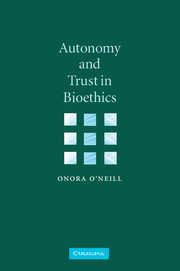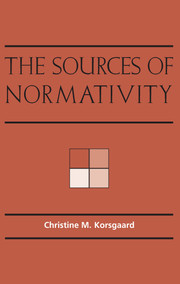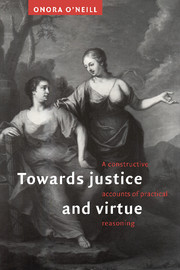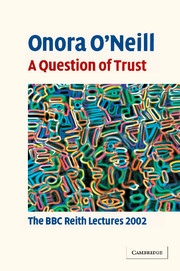Autonomy and Trust in Bioethics
Onora O'Neill suggests that the conceptions of individual autonomy (so widely relied on in bioethics) are philosophically and ethically inadequate; they undermine rather than support relationships based on trust. Her arguments are illustrated with issues raised by such practices as the use of genetic information by the police, research using human tissues, new reproductive technologies, and media practices for reporting on medicine, science and technology. The study appeals to a wide range of readers in ethics, bioethics and related disciplines.
- Author is a leading moral and political philosopher with considerable public visibility
- She has delivered the BBC Reith Lectures on a topic related to this one with lots of coverage
- She draws on numerous examples involving such topical issues as the use of genetic information, the use of new reproductive technologies, and media practice for reporting on science, medicine and technology
Reviews & endorsements
"This book provides an excellent analysis of misguided understandings of autonomy and trust. Recommended. All levels." Choice
Product details
January 2005Adobe eBook Reader
9780511030444
0 pages
0kg
1 b/w illus.
This ISBN is for an eBook version which is distributed on our behalf by a third party.
Table of Contents
- Preface
- Frontispiece
- 1. Gaining autonomy and losing trust?
- 2. Autonomy, individuality and consent
- 3. 'Reproductive autonomy' and new technologies
- 4. Principled autonomy
- 5. Principled autonomy and genetic technologies
- 6. The quest for trustworthiness
- 7. Trust and the limits of consent
- 8. Trust and communication: the media and bioethics
- Bibliography
- Institutional bibliography
- Index.







